REBNY 2021: Dusting Off Its Duds as Real Estate Market Starts to Recover
Fifteen months into COVID-19, the Real Estate Board of New York is getting back to business
By The Editors June 15, 2021 8:00 am
reprints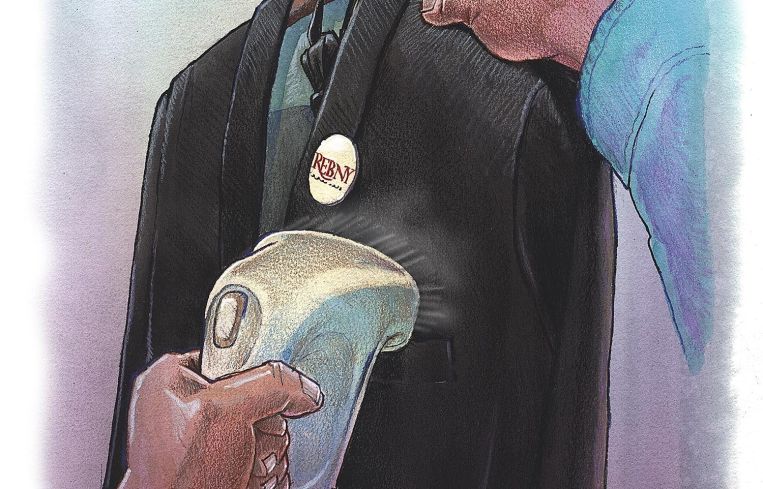


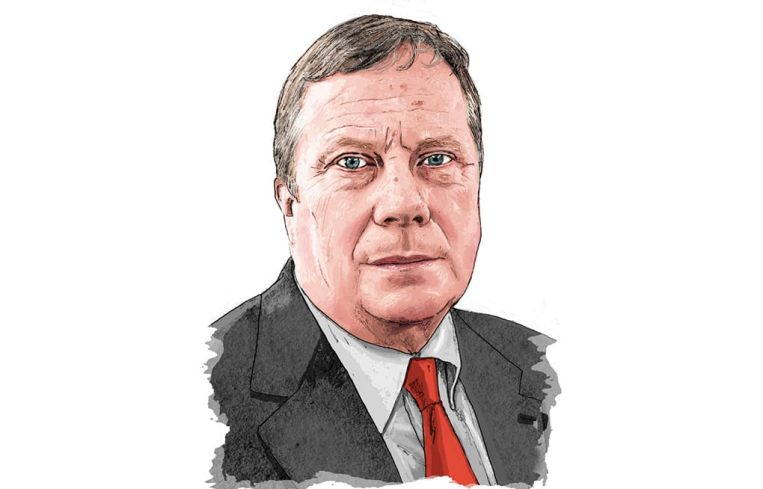
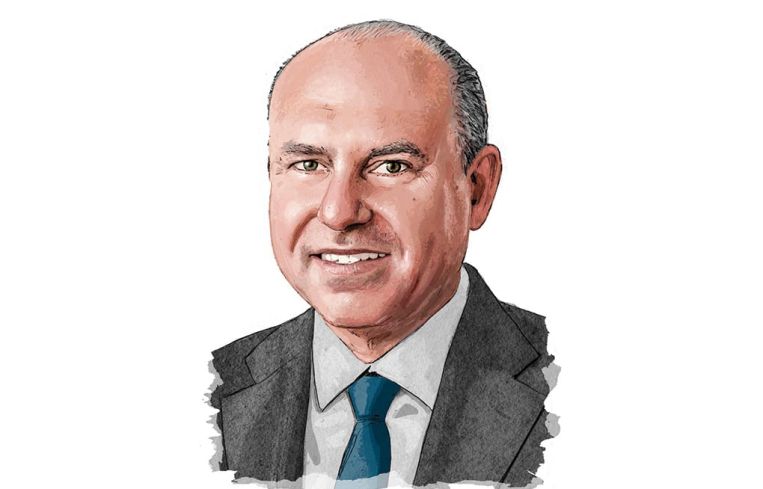
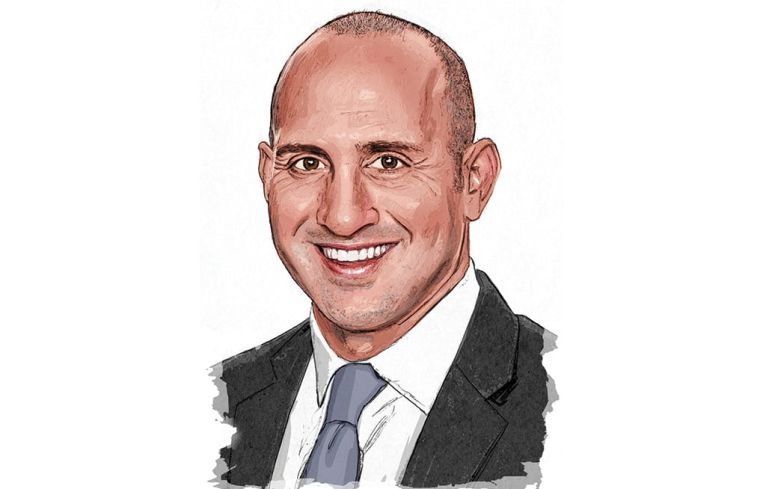
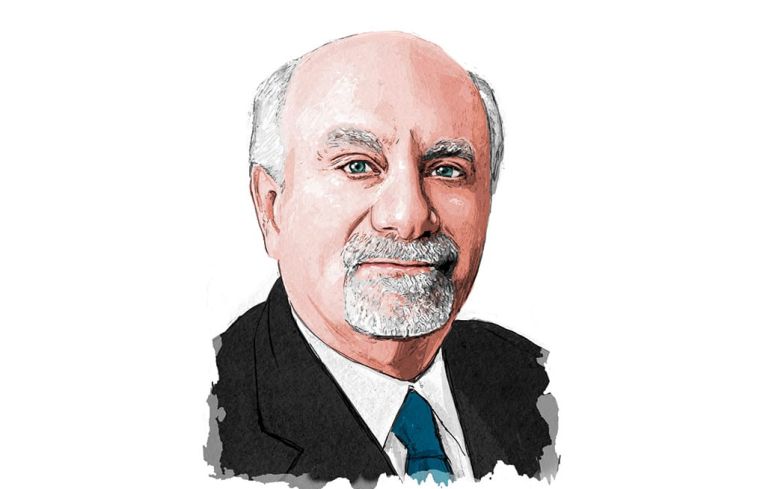
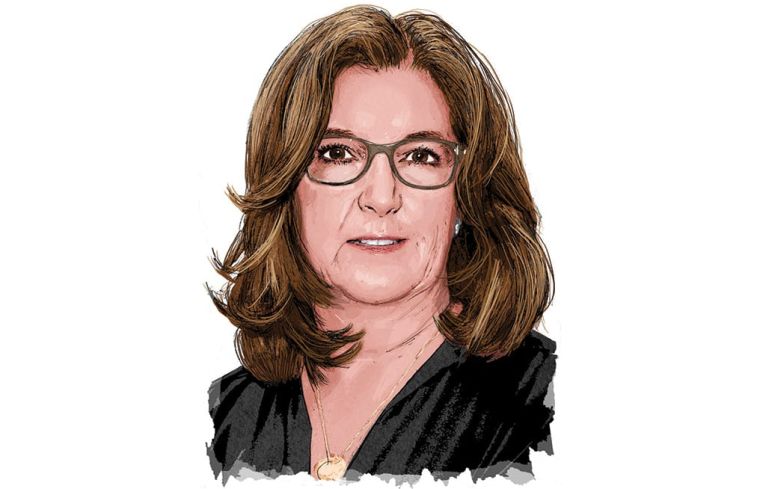
In January, the time when the Real Estate Board of New York hosts its annual gala, Commercial Observer decided that just because the banquet was canceled due to COVID-19 didn’t mean that REBNY was irrelevent. On the contrary, with the industry on its back, the real estate community needed a fierce advocate more than ever.
That’s because one can don the rosiest tint of glasses, but it still won’t change the fact that New York has a very big hole to climb out of.
Yes, we’ve seen some extremely encouraging progress over the last few months, and with each passing week, the momentum seems to be building; the stay-at-home protocols have been replaced with return-to-work plans. In April, CO was earnestly reporting 5,000-square-foot leases as the biggest deals of the week. Last week, SL Green alone was inking 124,000 square feet at One Vanderbilt.
All very good news. But still a far cry from where the real estate market was in January 2020. And, truth be told, real estate does not look like it will be more popular in 2022 among the city’s political class or its voters.
Here’s a big reason why: New York is in an election cycle dominated by the mayor’s race, while the dozens of contests for City Council have been relatively ignored. They shouldn’t be. As Rebecca Baird-Remba reports, the new council has a very good chance of being the most progressive (read: anti-developer) in history. This will be one of the more difficult waterways for REBNY to navigate.
And now that there seems to be some light at the end of the COVID tunnel, how is REBNY poised to help their members in multifamily, office, retail and hospitality? This is the question that Aaron Short asked in his story.
Finally, well before the murder of George Floyd, REBNY had been pushing itself toward more inclusion and diversity. Celia Young looked at how successful the effort has been and where it stands.
Of course, the REBNY gala every January was also very much about honoring the figures in the industry who have devoted their professional (and sometimes personal) lives to the city and its brick and mortar. Larry Getlen delved into the lives and careers of those that REBNY is honoring, including the essential workers who have kept the city humming this whole time.—Max Gross
Kyle Bragg, Kuba Brown and Gary LaBarbera
President of 32BJ SEIU, Business Manager of Operating Engineers Local 94, and President of the Building and Construction Trades Council
John E. Zuccotti Public Service Award
In what can be seen as both the least surprising and most deserving award of this year’s REBNY banquet, the John E. Zuccotti Public Service Award is being presented to New York real estate’s essential workers, the people who put their lives on the line at the height of the pandemic to help keep society moving forward at a remarkably troubling time.
Specifically, the award will be accepted by Kyle Bragg, president of 32BJ SEIU, which represents property service workers; Kuba J. Brown, business manager and financial secretary of the International Union of Operating Engineers Local 94, representing those who maintain HVAC and other building systems; and Gary LaBarbera, president of the Building and Construction Trades Council of Greater New York.
“It’s a recognition by the Real Estate Board of what courage and fortitude these workers had when they came out during the worst of the pandemic,” LaBarbera said. “New York City was the epicenter of the pandemic from March to June, when infection rates were skyrocketing, and these workers got up every morning and left their families, left their homes, and went to work. They ran the significant risk of getting the infection and bringing the virus home to their wives, their parents, or their children.”
As such, REBNY found this an obvious, and necessary, honor.
“This year has been difficult for many New Yorkers, but our honorees remind us that over REBNY’s 125-year history, we have always found a way to come back stronger and more dynamic than we were before,” REBNY Chairman Douglas Durst said. “New York was able to endure a global pandemic, thanks to the essential workers who kept our city running, even as it paused. It gives me particular pleasure to honor the contributions of essential workers in the real estate industry who are paving the way to New York’s coming resurgence.”
LaBarbera said that while many New Yorkers were hunkered down, working from home, essential workers completed numerous construction projects.
“There were a number of critical infrastructure projects, including building out hospitals,” he said. “That continued on.”
The honor is especially important since, as LaBarbera noted, some of these workers gave the ultimate sacrifice in order to help keep the city running.
“In the construction industry, we lost members to COVID-19,” LaBarbera said. “It is significant that the real estate community and REBNY are recognizing the workers who kept the city moving, kept buildings open, and worked on critical infrastructure projects that had to be maintained. So, it’s a great honor for me to be accepting this award on behalf of all those workers.”
Given his personal interactions with these brave workers, LaBarbera saw the sacrifice every day, and is humbled by the opportunity to help the real estate community show its appreciation.
“My office is directly across the street from the new Moynihan Train Hall,” he said. “That project was deemed an essential project, as was the Javits Center. Every morning, I interacted with the workers on [those projects]. In speaking to so many of them, they knew it was a real risk coming to work every day, but they knew these were essential, important projects that meant a lot to the city of New York in terms of coming back. And they overcame their fears. They were an inspiration to me.”—Larry Getlen
Bess Freedman
Chief Executive Officer, Brown Harris Stevens
The Kenneth R. Gerrety Humanitarian Award
It’s perfectly in keeping with the nature of the Real Estate Board of New York’s Kenneth R. Gerrety Humanitarian Award that when asked about her proudest achievements, this year’s winner, Brown Harris Stevens CEO Bess Freedman, spoke not about herself, but about the people around her.
“It’s always about the team,” Freedman said. “I can’t take credit for doing things on my own because, at a company, it’s a team sport.”
Freedman, who oversees 55 offices and more than 2,500 agents as the residential brokerage’s first chief executive, began her career as a lawyer, serving as the assistant state’s attorney in Montgomery County, Md. This job offered Freedman her first professional experience in doing well by doing good.
“I really felt that I was doing public service and working for the greater good,” Freedman said. “It gave me a skill set that I use every single day: how to analyze things, how to articulate or elocute, and how to work with other people to work things out. That was truly a highlight for me.”
Freedman spent 10 years at the Corcoran Group before joining Brown Harris Stevens in 2013. When asked about company achievements, she forgoes deal talk to focus instead on the company’s strong team culture.
“Before I got here, it was more about straight-up real estate. Now, there’s a more human voice to the company,” Freedman said. “What I’m proud of here is hiring new talent, and bringing in new energy and ideas. For a while, it was a bit static bringing in new agents. We’re a legacy firm, here since 1873. The perception is that there’s no creativity or diversity. I think what I have been able to do — with the help of a great team, obviously —is bring in a lot of new talent, and also recognize things like how important it is to vote and giving all employees the day off to vote.”
As for more quantifiable achievements, Freedman is quick to mention the company’s history of sales that feel astronomical, even for the luxury category.
“We’re known for being the Tiffany of high-end deals,” Freedman said. “We have records for the biggest sale of a single-family townhouse, for $77 million, and the highest price per square foot ever for a resale condo at over $13,000 a square foot, and we still have these incredible records today. We have maintained a position as dominating the high end of the market.”
Freedman, who lives on the Upper East Side with her teenage son and daughter, also earned the REBNY nod through her time working with nonprofits. She’s involved with Sanctuary for Families, which provides assistance to victims of domestic violence; The Bridge New York, which builds affordable housing; and the Kalief Browder Foundation, which advocates for bail reform.
Given all this, Freedman epitomizes the qualities sought in winners of the Kenneth R. Gerrety Humanitarian Award.
“Winning this reinforces the power of doing the right thing, and kindness and taking care of people — putting people first,” Freedman said. “This reinforces to me the mindset that there’s always time to do the right thing and take care of each other.”—L.G.
Kevin McCann
Senior Managing Director of Global Occupier Services, Cushman & Wakefield
The George M. Brooker Management Executive of the Year Award
It’s hard to look over the New York City office tower landscape without viewing a building that recently retired Cushman & Wakefield executive Kevin McCann helped bring to life, including the American Express Tower at 200 Vesey Street, 60 Wall Street, 75 Wall Street, and the New York Mercantile Exchange headquarters at the World Financial Center.
Early in his career, McCann — who holds a bachelor’s in mechanical engineering from City College, has a certified property manager designation from the Institute of Real Estate Management, and is a trustee of the New York City Master Plumbing Licensing Board — worked at Forest City Ratner. While there, he was in charge of property management at the 8 million-square-foot MetroTech development in Downtown Brooklyn. McCann then spent time at Tishman Speyer, where he commissioned the office building at 520 Madison Avenue.
Early on at Cushman & Wakefield, he was the chief engineer for the 1.8 million-square-foot office tower at 1301 Avenue of the Americas.
His responsibilities at the firm also included overseeing the management of 24 million square feet of office space out of Cushman & Wakefield’s downtown Manhattan hub. And he handled the UBS North American portfolio — approximately 6.5 million square feet of office property in the tri-state and Chicago.
McCann led the commission and management of some of New York City’s most complex facilities, too, including the World Trade Center’s 16-acre campus and its retail, the recently opened Moynihan Train Hall and the 911 call center in the Bronx. He’s also done the same for national corporate real estate portfolios.
“Kevin has a reputation for being a go-to leader for some of the city’s largest and most complicated projects,” Toby Dodd, tri-state president of Cushman & Wakefield, said. “Throughout his career, Kevin became an expert in crisis management, guiding clients through a handful of major events, including Superstorm Sandy, the COVID-19 pandemic, and countless power outages and snowstorms. Kevin’s deep knowledge of our industry and city is exceptional, and matched only by his professionalism and genuine kindness to others.” —L.G.
Gregg Schenker
President and Co-Managing Partner, ABS Partners Real Estate
The Louis Smadbeck Memorial Broker Recognition Award
With a real estate career that began in 1987 working for Harry Helmsley, Gregg Schenker finds it challenging to pinpoint one or two highlights. But the man who put the “S” in ABS when he co-founded the firm feels a very real bond to his profession, borne from early jobs learning the business from the ground up.
“I started at the bottom, on a construction site, on summer jobs between college semesters,” Schenker said. “I was working a non-union construction job in Fort Greene, Brooklyn, in the days when Fort Greene wasn’t such a safe place.”
He also attended NYU’s Schack Institute of Real Estate, where he studied under professors who “were actually in the real estate business as professionals, as opposed to teaching theory, or just solely from textbooks. They were teaching from the real world.”
Schenker, who lives on the Upper East Side with his wife, Lisa, co-founded ABS with Earle Altman, Steven Hornstock, Dan Burack and Peter Burack in 1999, after spending 12 years working for Helmsley. Today, the company has four offices, 80 employees, and a portfolio of properties and assets under management totaling more than 14 million square feet.
Their signature properties include the 237,000-square-foot office and retail building 200 Park Avenue South; Kenton Circle, a 150,000-square-foot suburban office center in North Carolina; Datran Center, a 500,000-square-foot, two-building complex in Miami; and a five-building, 350,000-square-foot life sciences campus with 31 acres of entitled land in Princeton University’s Forrestal Center.
Asked to discuss a deal he’s especially proud of, he talks about Manhattan’s 110 University Place.
“That’s where Bowlmor [Lanes] was,” Schenker said. “The Benenson family owned the land, and Billy Macklowe wanted to build a condominium there, but he couldn’t because it was on a ground lease structure. We completed a very complicated transaction so that Billy could build a condo, and the Benensons retained the retail on the lower level and were paid a substantial sum for their air rights, which we then used to buy three buildings together. That one probably stands out to me more than most.”
Schenker’s current endeavors include organizing the purchase of four buildings on Steinway Street in Queens; the acquisition of 505 apartments in Austin, Texas; and a recently completed transaction, where he organized a group to acquire an office building on PGA Boulevard in Palm Beach Gardens, Fla.
In addition to his work at ABS, Schenker has also spent time giving back. He co-founded the Flatiron/23rd Street Partnership Business Improvement District, serving as chairman for more than a decade, and chaired ARMI — the Association for the Rehabilitation of the Mentally Ill, now known as the Association for Rehabilitative Case Management & Housing — which provides housing in Manhattan to people dealing with mental health issues.
“We were building housing for the mentally ill during the Dinkins administration,” Schenker said. “I did that for over a decade. In those days, the homeless problem and the mentally ill population in New York really needed supportive housing, and I helped to solve that need. So, when I look back and I see how I participated, I’m grateful that I had the opportunity.”—L.G.
Robert Shapiro
Executive Managing Director, Cushman & Wakefield
The Young Real Estate Professional of the Year Award
Let’s put aside for a moment that the honoree for Young Real Estate Professional of the Year is a 20-year real estate veteran with the title of executive managing director.
Because when we look at Robert Shapiro’s record, including facilitating the sale of more than 400 New York City investment properties for an aggregate value of more than $2.4 billion, it’s clear that he’s deserving of an award, whatever they choose to call it.
“It’s absolutely one of the highlights of my career,” said Shapiro of the distinction, which is awarded by the Young Men’s/Women’s Real Estate Association of New York (YM/WREA), which he has chaired. “I’m extremely honored to be recognized for my contribution in this industry. I’ve dedicated half of my life to the betterment of New York City, and helping people transact their property needs.”
Shapiro initially joined Massey Knakal Realty Services in 2001 — which Cushman & Wakefield bought in 2014 — and has focused on investment sales, working with institutional investors, universities, long-time owners, nonprofits, and religious organizations throughout his time at the companies.
His expertise has come to bear in such transactions as the Federation of Protestant Welfare Agencies’ $50 million sale of 281 Park Avenue South in 2014 to a joint venture of RFR Holding and Real Estate Capital Partners.
“Two Eighty-One Park was a beautiful old building, used as offices for a nonprofit,” Shapiro said. “The building needed to be completely gut-renovated, and it was eventually converted into where Fotografiska is today. Turning something that was used as office space into a cultural epicenter has been really rewarding.”
Even his chairmanship of the YM/WREA, which earned him this award, was as much an example of his perseverance and tenacity as anything else.
“It’s a networking group, and investment sales brokers never really played a prominent role in the organization,” Shapiro said. “So, I came in with the disadvantage of not knowing everybody. You just have to go in there and introduce yourself. I ran for the board two times before actually making it onto the board. I made it onto the board of governors the following year, ran for chairman the third year, lost, doubled down my networking, and ultimately did win it. So, having that long-term vision, setting my mind on a goal and doing whatever it takes to get to that goal, is not only an example of how I conduct my business, but how I was able to succeed in this group.”
Shapiro is currently working on the sale of a $74.25 million portfolio, called the Metro Portfolio, of 13 buildings throughout Chelsea, the West Village, and Hell’s Kitchen.
“They’re all about to be under contract,” Shapiro said. “We competed against every big brokerage out there. I led Cushman’s efforts on that, and was able to secure the business and effectuate what looks to be a good sale.”
In addition to his work with the YM/WREA, for which he led neighborhood clean-up efforts during the pandemic, Shapiro is also on the board of ArtBridge, a group that promotes local artists’ work transforming construction fencing.
He looks forward to continuing to help younger commercial real estate novices become caring, successful, and seasoned professionals like himself.
“I’m really having fun helping grow the middle-markets business for Cushman,” Shapiro said. “I was made part of the middle-markets leadership team, along with one of my colleagues, and I’m dedicating my time to not only helping my clients, but also to helping the junior or less-seasoned brokers in our group grow.”—L.G.
Alan Wiener
Group Head, Wells Fargo Multifamily Capital
The Bernard H. Mendik Lifetime Leadership in Real Estate Award
In addition to serving as recognition from his peers for a lifetime of accomplishments, Alan Wiener’s receipt of the Bernard H. Mendik Lifetime Leadership in Real Estate Award carries a special significance, as the honoree knew and worked with the former REBNY president for whom the award is named.
“I knew Bernie very well. We had a very open and cordial relationship. So, it’s nice for me to have that recognition with his name on it,” said Wiener, group head at Wells Fargo Multifamily Capital. “He was a dynamic leader, a chairman who really got it.”
The same could be said for Wiener, who’s been affecting the city’s built environment for more than four decades.
Wiener served as an assistant to New York City Mayor Abe Beame in the mid-1970s, and was New York director for the U.S. Department of Housing and Urban Development from 1978 to 1981. That second role led to a unique accolade for a HUD official fromthen-President Jimmy Carter.
“In my nine years in government, both at the city and at HUD, I had an impact in creating so many affordable units, and turning that HUD office into one of the top HUD offices in the country,” Wiener said. “Ultimately, I was the first person outside of Washington to get a recognition of outstanding service award from the president.”
He founded American Property Financing Inc. in 1991, and served as the company’s chairman and director, until it was acquired in 2006 by Wachovia — which was later acquired by, and absorbed into, Wells Fargo. Wiener has since helped build Wells Fargo into the top multifamily lender in New York, with a loan portfolio there of more than $13 billion.
“In terms of the expansion of the business, we are not only the largest real estate bank in the country, but we’re also the largest investor in affordable housing,” Wiener said.
Asked to pick a signature deal, he speaks of Wells Fargo’s work with Co-op City in the Bronx.
“We refinanced Co-op City, which is 15,300 affordable co-op units, in 2012 with HUD, and did a 35-year loan,” Wiener said. “It took me two years to get the loan done, and it saved the cooperators $150 million in interest over the first 10 years of the loan. We’ve done a lot of large deals: StuyTown, Parkchester, Manhattan Plaza, Starrett City.”
When not arranging some of the city’s biggest affordable housing deals, he’s impacting the sector through work with nonprofits. Wiener serves as the lead director for the Community Preservation Corporation (CPC), which has created or preserved 196,000 affordable units since its founding in 1974. He also spent 22 years on the board of the nonprofit affordable housing developer, Phipps Houses, and has served on his local zoning board in Westchester — where he lives with Frances, his wife of 51 years — for almost two decades.
“I try to stay busy,” he said, understating the point.
For all his success, Wiener understands that living a life of success, especially in real estate, means helping pass along your good fortune to others.
“We have to give back. We’re very fortunate. I’ve spent my time giving back by being involved in affordable housing,” Wiener said. “It’s about how fortunate we are. The people I really respect are the ones who see that we are very fortunate, and that we all have to give back.”—L.G.
Laurie Zucker
Vice Chairwoman, The Zucker Organization and Manhattan Skyline Management Corp.
The Harry B. Helmsley Distinguished New Yorker Award
REBNY’s Distinguished New Yorker Award has special meaning on two levels for Laurie Zucker, vice chairwoman of both The Zucker Organization and Manhattan Skyline Management Corp. Her father, the company’s namesake, won the same award in 1996. And Zucker is only the second woman to win it, following residential brokerage legend Barbara Corcoran in 2006.
“I feel incredibly honored to be included among the past winners of this very prestigious award,” Zucker said. “The people who have won it in the past have been among the greatest of the great in New York real estate. I am the second woman to have won it, so I think it’s great that they’re recognizing women. And my father won it, and it’s kinda nice that I have followed in his footsteps. He’s been an amazing mentor.”
When Zucker began in real estate in 1977, she was one of the industry’s few women outside of brokerage.
“I was one of the first women to come into real estate as a developer, as opposed to being a residential broker,” Zucker said, noting that her first project was a gut-renovation of Claridge’s on 55th Street and Sixth Avenue. “There were lots of female residential brokers, but in 1977, there weren’t many women developers at all, or women interested in construction.”
Day to day, Zucker is heavily involved in the management of the company’s more than 2,100 rental apartments in Manhattan, along with several hundred retail outlets. The past year or so, then, has been quite a challenge.
“A lot of our residents were in and out, trying to switch around, trying to leave, come back, upgrade,” Zucker said. “Usually in New York, our vacancy rate is around 1 percent. That changed dramatically with COVID. A lot of our demographic is young people, so we have people sharing apartments, and then you have to deal with their parents, because the parents are involved. So, every negotiation was talking to, like, six different people.”
With New York real estate in chaos, Zucker was especially appreciative of REBNY’s efforts.
“We had to figure out what we had to do in order to stay open, and for that, REBNY was incredible,” Zucker said. “I’m on the residential committee there. I attended all the meetings, and they provided a lot of guidance for us, because the safety plans were voluminous.”
In addition to her work with The Zucker Organization and with REBNY, where she’s on the Board of Governors in addition to several residential committees, Zucker serves on the boards of the landlord group, the Rent Stabilization Association; the residential division of the Realty Advisory Board on Labor Relations Inc.; the Children’s Museum of Manhattan (CMOM); and Lenox Hill Hospital.
Given all this, she is especially honored to be recognized by REBNY.
“They’re always there for us, always advocating for the real estate community,” Zucker said. “They are in touch with us constantly to find out what our needs are, and they help communicate that to government officials, which hopefully helps them form something that works for us. Honestly, I never do things like this — get awards, or do publicity. But for REBNY, I do it. They lost a lot of money this year. They need our help.”—L.G.



